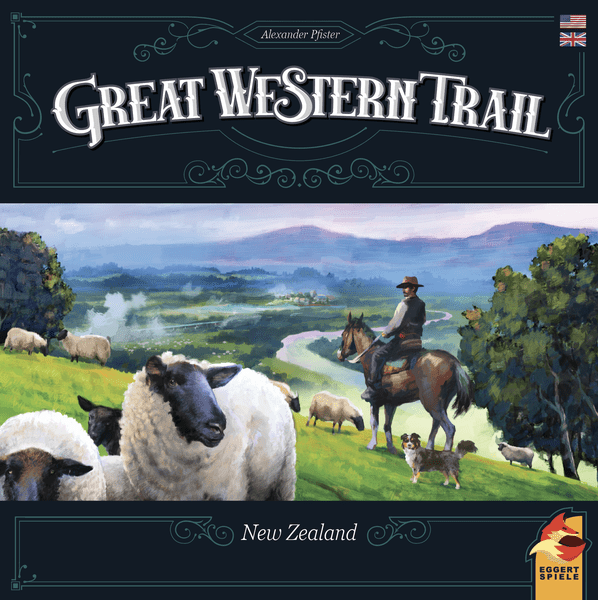Great Western Trail: New Zealand (2023) Board Game
Great Western Trail: New Zealand is an expansion to the popular board game Great Western Trail, designed by Alexander Pfister and published by eggertspiele. This expansion adds a new board featuring New Zealand landscapes, along with new mechanics and components to enhance the gameplay experience.
Game Components of Great Western Trail: New Zealand
How To Setup Great Western Trail: New Zealand
Setting up the game involves laying out the large game board, which includes a map of New Zealand and various action spaces. Each player receives a player board and initial resources. The A/B tiles are shuffled and placed according to the game’s setup rules. Bonus cards and objective cards are also shuffled and placed in their respective piles. The game requires significant table space due to its extensive components, including the island hopping section and multiple card-draw piles.
Gameplay Mechanics and Game Objective
Player Experience
Playing **Great Western Trail: New Zealand** is a complex and engaging experience. The game demands careful planning and strategic decision-making, especially with the increased focus on deckbuilding and the introduction of new mechanics like sheep shearing and the boat track. Players must balance building their deck, managing resources, and optimizing their action sequence to win. The game’s large table footprint and numerous components can be overwhelming but also add to the immersive experience.
Pros
Cons
Personal Thoughts on Great Western Trail: New Zealand
**Great Western Trail: New Zealand** is ideal for fans of the series who are looking for new challenges and deeper strategic layers. However, it may not appeal as strongly to those who enjoyed the simplicity and tension of the original game. Newcomers to the series might find it overwhelming due to its complexity, but it can still be a rewarding experience for those willing to invest time in learning the new mechanics. If you enjoy intricate strategy, deckbuilding, and economic management, this game is certainly worth exploring.
We are supported by our audience. When you purchase through links on our site, we may earn an affiliate commission, at no extra cost for you. Learn more.

